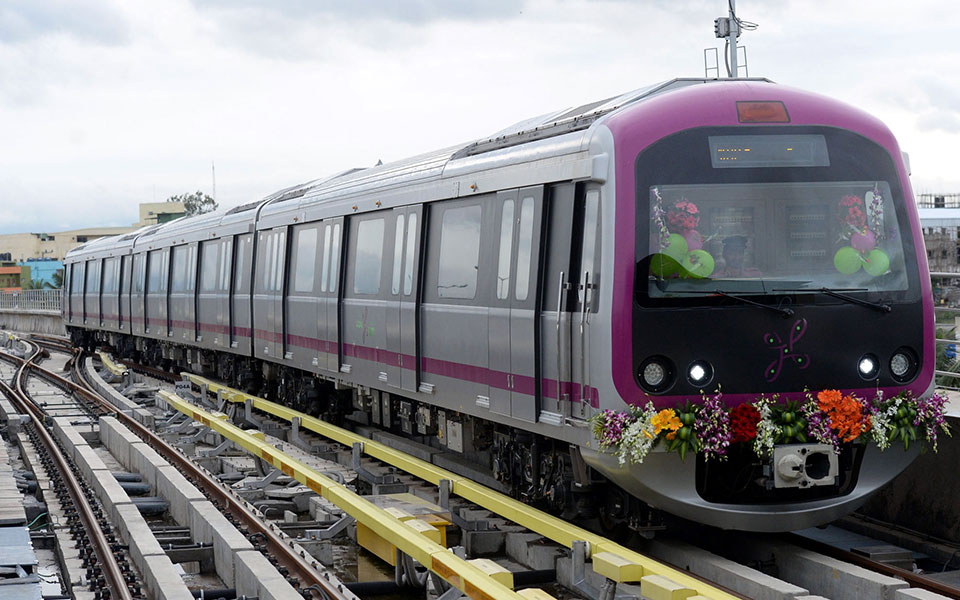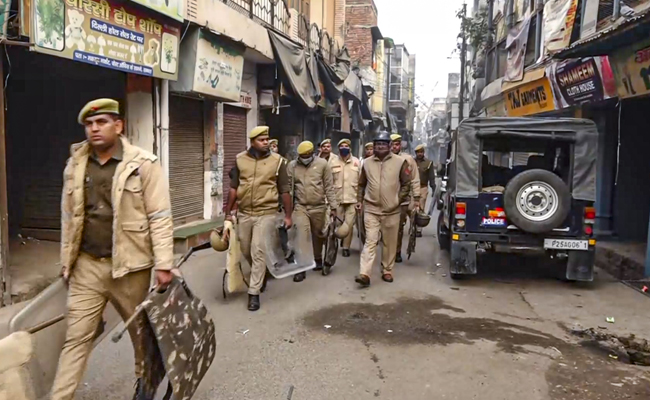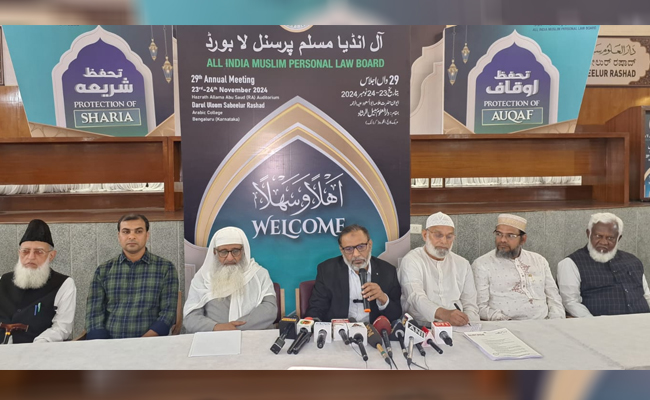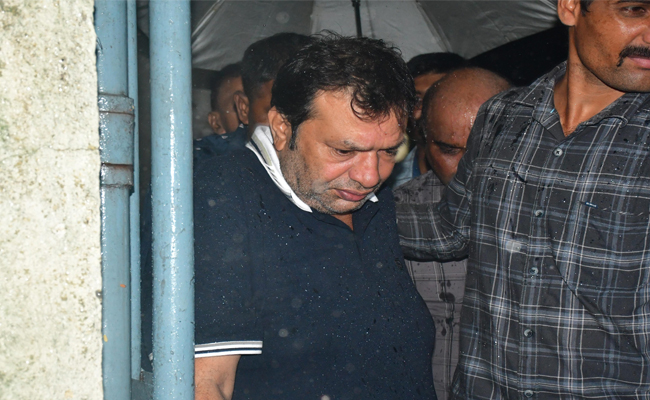Bengaluru, June 22: The Bengaluru Metro rail operator on Friday doubled coaches to six from three to ferry more commuters on the east-west Purple Line.
Amid fanfare, the six-coach swanky service was flagged off by Karnataka Chief Minister H.D. Kumaraswamy in presence of Union Urban Development Minister Hardeep Singh Puri at Baiyappanahalli station in the east to Mysuru Road station in the west via Kempegowda station in the city centre.
Deputy Chief Minister and Minister for Bengaluru Development G. Parameshwara, Chief Secretary Ratna Prabha, city mayor R. Sampath Raj and Bengaluru Metro Rail Corporation Limited (BMRCL) Managing Director Mahendra Jain along with Kumaraswamy and Puri took a ride on the six-coach train after it was flagged off 40 minutes behind the schedule.
The three additional coaches, manufactured by the state-run Bharat Earth Movers Limited (BEML), were added to one of the metro trains on the east-west purple line, with the first coach reserved for women and children.
The additional cars were added seven years after the service was launched in October 2011 and a year after the former President Pranab Mukherjee opened the entire 43km phase-1 of the metro network, including the north-south green line.
Incidentally, the foundation stone for the metro project was laid by former Prime Minister Manmohan Singh in 2006, when Kumaraswamy was the Chief Minister.
The three cars were handed over by BEML to BMRCL in February this year, after which it took nearly four months for them to be integrated with the metro trains and tested.
The metro service, which opened to the public in June 2017 after several deadlines were missed, has not eased the traffic congestion on the city's arterial roads as it covers a mere 43 km of the 800 km city with ever-expanding suburbs.
Currently, at least four lakh people use the Bengaluru metro each day for commute on its north-south green line and east-west purple line, the latter being the busier route among the two.
The addition of metro coaches aims at easing the peak hour rush.
By June 2019, the BMRCL aims for all the 50 metro trains running on the two lines to have six coaches instead of three.
With the addition of three coaches to each of the city's 50 metro trains, the number of passengers to ride the metro each day is expected to double to about eight lakh.
Let the Truth be known. If you read VB and like VB, please be a VB Supporter and Help us deliver the Truth to one and all.
Sambhal (UP) (PTI): Police have lodged seven FIRs in connection with the violence over a court-ordered survey of a Mughal-era mosque here, naming Samajwadi Party MP Zia-ur-Rehman Barq and local SP MLA Iqbal Mehmood's son Sohail Iqbal as accused, officials said on Monday.
The district administration has already imposed prohibitory orders and barred the entry of outsiders into Sambhal till November 30. Internet services are suspended in Sambhal tehsil and the district administration declared a holiday in all schools for Monday.
Three people were killed and scores of others, including security personnel and administration officials, injured on Sunday as protesters opposing the survey of the Shahi Jama Masjid clashed with police. A fourth injured person died on Monday.
Addressing a press conference on Monday, Superintendent of Police Krishan Kumar said seven FIRs have been lodged in connection with the violence. Six people, including Barq and Iqbal, were named and 2,750 others have been mentioned as unidentified, he said.
"Due to Barq's statement earlier, the situation became worse here," he added.
The officer said 25 people have been arrested so far in the case and attempts are on to identify others involved in the violence.
He added that there was peace in the city and people have opened their shops even though it is the day of the weekly closure of markets.
District Magistrate Rajender Pensiya said late on Sunday that the prohibitory orders had been issued under provisions of the Bharatiya Nyaya Sanhita (BNS).
"No outsiders, other social organisations or public representatives will enter the district border without the permission of the competent officer," said the order, which came into force with immediate effect.
Violation of the order will be punishable under Section 223 (disobedience to order duly promulgated by public servant) of the BNS.
Earlier, Muniraj told reporters that Naeem, Bilal and Nauman -- the three men who died in Sunday's violence -- had been buried.
All three were aged about 25.
Tension had been brewing in Sambhal since November 19 when the Jama Masjid was first surveyed on the court's orders following a petition claiming that a Harihar temple had stood at the site.
On Sunday, trouble started early when a large group of people gathered near the mosque and started shouting slogans as the survey team began its work.
District officials said the survey could not be completed on Tuesday and was planned for Sunday to avoid interference with afternoon prayers.
Supreme Court lawyer Vishnu Shankar Jain, who is a petitioner in the case, had earlier said the Court of Civil Judge (Senior Division) ordered the constitution of an "advocate commission" to survey the mosque.
The court has said a report should be filed after conducting a videography and photography survey through the commission, he had said.
On Sunday, Jain urged the Archaeological Survey of India to take control of the "temple".
Gopal Sharma, a local lawyer for the Hindu side, had earlier claimed the temple that once stood at the site was demolished by Mughal emperor Babur in 1529.





